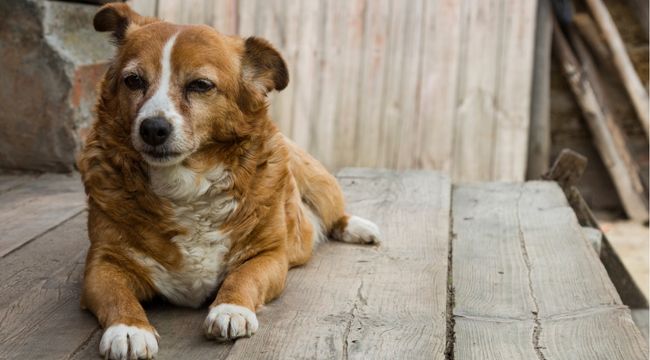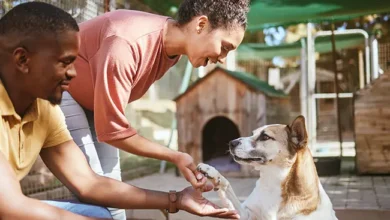
As beloved pets age, it’s important to recognize the changes in the care they may need. Whether you have a dog, cat, or other pet entering its senior years, understanding how to provide them with proper care can help ensure they live out their golden years feeling comfortable and happy. This guide will walk you through all the steps of caring for your elderly pet so that you can give them the best quality of life.
Hire Help
As pets age, their needs often require more of our time and patience than when they were younger. Many people with elderly furry friends reach out to pet services to help them during this period. Not only will a professional pet caregiver have the expertise and knowledge to care for an elderly pet’s special needs, but also provide regular check-ins and companionship when needed.
Hiring help for your older pet is a great way to make sure they are safe and happy. For example, a pet sitter can check on your pet daily to ensure it eats and takes its medicine as needed. Additionally, many pet care services offer overnight stays for elderly pets who need extra attention during the night.
Keep It Active
While your senior pet may already be slowing down, it’s important to keep them active. Taking regular walks and doing some light exercises with your pet can help them stay strong and healthy, while also stimulating their minds. Incorporating puzzle toys and regular training sessions into their routines can also provide a great way for them to keep both their bodies and brains sharp.
Additionally, engaging in activities like playing fetch or tug-of-war can help distract them from any aches or pains they may sometimes feel along with helping keep them at a healthy weight. Keeping your old pet on a regular exercise schedule is an important part of giving them the care they need.
Visit The Vet Frequently
The bodies of older pets change, and their health can deteriorate quickly, so having regular check-ups with the vet is critical in maintaining your elderly pet’s overall well-being. During these visits, the vet will not only be able to keep an eye on any changes in your pet’s physical health, but they will also be able to talk to you about any dietary needs or changes that need to be made to make sure your pet stays happy and healthy as they age.
Regular visits to the vet can help alleviate any worry or stress you may feel as a pet owner, which makes it an invaluable tool in providing your aged furry friend with the best care possible. For example, if your pet shows signs of pain or discomfort, the vet can diagnose and prescribe the appropriate medication to ensure they remain comfortable.
Maintain Oral Health
Caring for an elderly pet means taking extra precautions. One important way to do so is to practice good oral hygiene. Regular brushing and professional dental cleaning can help reduce the buildup of plaque, lower the risk of gum disease, and slow down bad breath.
It’s also important to look out for potential dental issues such as rotten teeth, fractured teeth, or growths in the mouth. If any of these symptoms appear in your pet, it’s wise to take them to a vet right away.
Adjust The Environment
As your pet enters its golden years, it is important to adjust its environment to make sure they stay safe and comfortable. Make some small changes like the following:
- adjust the temperature
- reduce light
- get a better bed
- upgrade the flooring
- use ramps
- reduce climbing stairs
- lift their bowls
These can make a world of difference to our beloved companions. By preparing your pet’s surroundings, you can make sure your senior companion stays cozy and content during their twilight years.
Use A Support Sling
This is one of the best additions to the tools you can utilize to care for your elderly pet. The sling helps provide extra support and stability for elderly pets who may struggle with getting around. In order to make your pet more comfortable, you need to make sure the sling fits well and is snug enough that it doesn’t slip off while they are walking.
This extra support can make a big difference in your pet’s quality of life as they age, allowing them to move more freely and enjoy their activities with greater ease. For example, you can help your elderly pet up the stairs or out of the car with a support sling.
Get Proper Food
As your pet enters its golden years, it’s important to provide them with the proper nutrition for its age and activity level. Consider switching to food specially formulated for senior pets, as it may be easier for them to digest and contain the necessary nutrients. Talk to your veterinarian about what would work best, taking into account any medical issues they might have.
It’s also a good idea to reduce meal size, because older pets tend to overeat in order to compensate for lost energy. Make sure that your elderly pet stays hydrated with plenty of fresh water available at all times. Feeding them small meals frequently during the day can help maintain their energy levels; plus you’ll get extra quality time together for you both to enjoy!
Groom Regularly
Taking the time to groom your elderly pet regularly is important for multiple reasons. Daily or weekly brushing helps bring out their natural oils and keep their coat healthy, even if they tend to shed a bit extra as they age.
Also, grooming your pet regularly can help you get closer to them and give you a chance to notice any oddities, like lumps or skin irritations, that might need medical attention. Plus, it’s just another way to show your furry family member love!
For your pet’s health, it’s important to keep them clean, so give them regular baths with a mild shampoo. Depending on the breed and lifestyle of your elderly pet, monthly or bi-monthly baths are typically recommended. This will not only keep them looking clean but will also help to keep any odors at bay.
Even in their old age, pets deserve your unconditional love. Make sure you meet your pet’s health needs by taking it to the vet regularly, taking care of its teeth, and ensuring it gets the right food. Also, if your pet is getting old, it can be harder and more tiring to take care of them than when they were younger puppies. It may take extra effort, but these accommodations are key to giving this furry family member a happy and healthy life!




